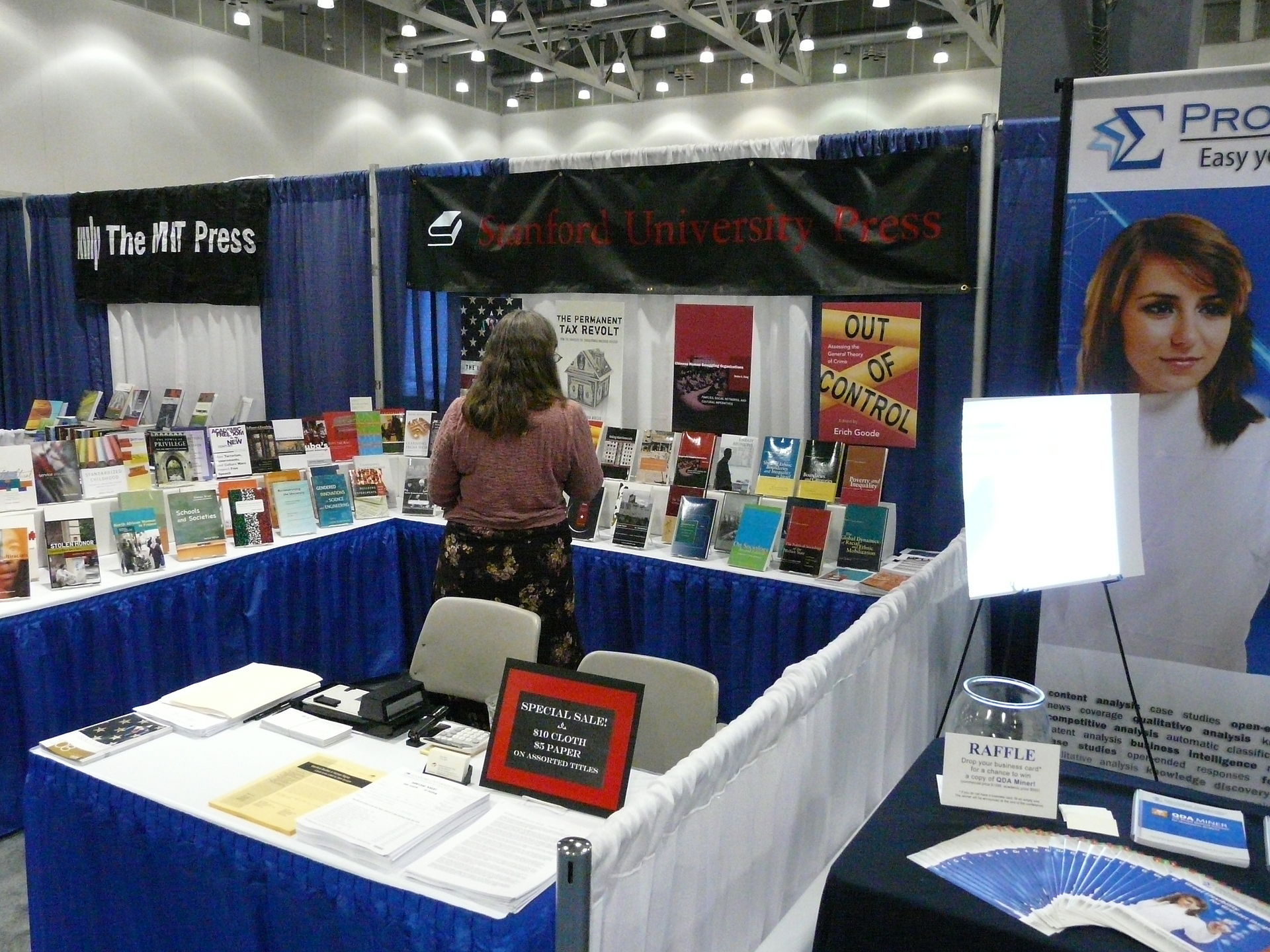As much as $1.7 million in “one-time funds” will be made available to the Stanford University Press in fiscal year 2020, Provost Persis Drell announced to Stanford faculty Tuesday afternoon. The move was met by the Press’s supporters with guarded optimism.
The message followed the action of over 4,000 faculty members, students and community members who demanded continued funding for Stanford University Press, after Drell announced the rejection of the Press’s application for $1.7 million in funding per year for five years — in the wake of poor performance from the University endowment — at Friday’s Faculty Senate meeting.
Drell wrote that she wanted to thank those who explained how the decision had been interpreted as a “marginalization of the humanities at Stanford,” which, she wrote, “is deeply regrettable and certainly not what was intended.”
“I did not anticipate it would touch such a deep nerve in the community of our humanities and social sciences colleagues,” Drell wrote.
“My goal was, and continues to be, to find a financial model for the Press that is sustainable, builds upon the strengths of the Press and ensures its success for years to come,” Drell added. “Numerous years of one-time funding bridges do not make for a compelling path for the Press.”
Drell said she intends to make the funds available to help ensure a “smooth transition to a sustainable future.” She added that once it has a sustainable model, the Press “may request incremental general funds in the FY21 budget process.” Drell noted that philanthropy may be an additional avenue for funding as the Press “focuses on its considerable strengths.”
Faculty members’ reactions were mixed, praising the announcement of additional funding, but countering that it was still not enough.
While the provost’s message is a “step in the right direction,” the language of sustainability means the Press “is still on the chopping block,” wrote Ge Wang, associate professor in the Center for Computer Research in Music and Acoustics (CCRMA) in an email to The Daily. Wang’s book, “Artful Design: Technology of the Sublime,” was published by the Press.
In a Tuesday afternoon tweet, he wrote, “Stanford, as a single entity, ultimately needs to be sustainable … but it must be considered differently at [different] levels and granularities within a university … What gets funded (or not) reflects an institution’s actual values.”
“[T]he fundamental question here,” Wang continued, “is not the budget, but rather the extent to which the Press aligns with Stanford’s core values.”
In her message to faculty, Drell also announced that a faculty committee, chaired by political science department chair Judith Goldstein, will support vice provost for the Academic Council and the Stanford University Libraries Michael Keller and Stanford University Press director Alan Harvey. The committee, which is to provide quarterly updates to the Provost, will “ensure faculty input in the process” in the development of a sustainable financial model, Drell wrote.
Jessica Riskin, vice chair of the History Department and chair of the Academic Senate’s Library Committee (C-LIB), who circulated two letters advocating for funding for the Press and faculty consultation in the budgetary process, praised Drell’s Tuesday announcement, but pushed for further funding.
“I’m very glad the Provost has promised to continue the [$]1.7 million subsidy to the press for the coming year, and gratified to know that she has heard us regarding the importance of the SUP,” she wrote to The Daily.
“So I applaud these developments and am greatly relieved,” she continued. “However … the SUP can only be ‘sustainable’ with a permanent, significant annual subsidy and/or significant philanthropy to build up an endowment.”
A permanent annual subsidy is not the same as a series of “one-time” funding allocations, Riskin noted. “I don’t think there should be annual one-time funding … rather I think there should be a recurring, permanent annual base subsidy to the press.”
Riskin added that university presses “are not self-sustaining because they publish scholarly works that are not necessarily commercial. That is indeed their whole purpose.”
Riskin said that the faculty committee appointment Drell described “sounds like a good plan,” but still pushed for “consultation” with the Faculty Senate as requested by the letter from the Faculty Senate’s Committee on Libraries (C-LIB) and others, which, she said “should not be bypassed in a matter of such momentous importance.”
The reaction from education professor Walter “Woody” Powell was also mixed. Powell, along with education assistant professor and co-editor Patricia Bromley, anticipates the publication of the third edition of “The Nonprofit Sector: A Research Handbook” by Stanford University Press in 2020.
“This is welcome news, a sign that campus voices were listened to,” Powell wrote in an email to The Daily. “But it is a reprieve, not a full fledged commitment to supporting a quality press. There is much work still to be done to persuade our leaders of the value of a university press, and that administrative criteria are not indicators of intellectual quality.”
History professor Zephyr Frank told The Daily that while he is glad for restored funding for FY20, he is “not satisfied with the Provost’s response.”
“She says it ‘touched a nerve,’ but it did more than that,” he said, referring to Drell. “People were to be laid off. Whole areas of publishing by the Press laid to waste.”
“This was not a reasonable plan from the start,” Zephyr said. “It was a huge mistake and … [l]eaders need to admit mistakes. This is not leadership.”
Riskin said that she and a number of colleagues still plan to present a resolution at an upcoming meeting of the Faculty Senate. They will be endorsing the requests of the C-LIB letter for the deliberation process to occur in consultation with the elected Faculty Senate and the appointment of an external review committee academic publishing experts.
Contact Elise Miller at elisejl ‘at’ stanford.edu.
